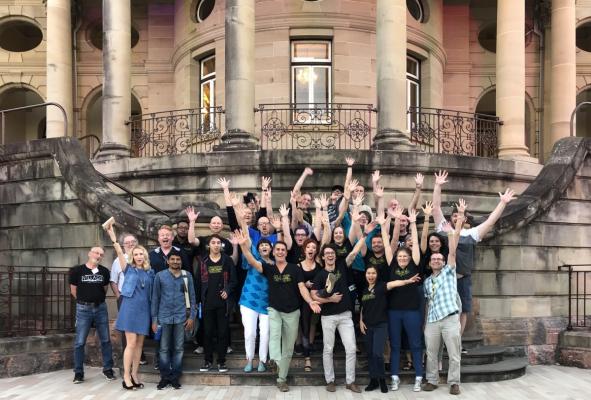
By Matthew Pearce
A report released on 17 November shows the level of innovation is high in Central Queensland, with the Covid-19 pandemic motivating businesses to embrace new services and new ways of doing things.
The Queensland Regional Innovation Benchmark Report, compiled by the University of the Sunshine Coast, surveyed almost 700 business owners and managers from Moreton Bay, Sunshine Coast, Noosa, Fraser Coast, Bundaberg, Townsville, Rockhampton, Gladstone and Emerald.
USC senior lecturer in Entrepreneurship and Innovation Dr Retha de Villiers Scheepers led the research, which assessed regional business innovation and the resilience of entrepreneurs and the organisations that support them in responding to the challenges posed by Covid-19.
“Post-lockdown, we witnessed high levels of new-to-the-firm innovation in the latter part of 2020,” she said.
“In Rockhampton the SmartHub has actually been quite instrumental in building a business community that focuses on innovation in recent years.”
The Rockhampton Regional Council’s SmartHub, located at the Customs House, provides support and assistance to startups, entrepreneurs and small business owners.
“While the area is quite dominated by agriculture and construction, we actually had 61 per cent of businesses in Rockhampton and Central Highlands telling us how they had adopted practices that were new to their firm, which our partners in the region were quite surprised about,” Dr Retha de Villiers Scheepers said.
“They didn’t think the level of innovation was necessarily that high.”
Dr de Villiers Scheepers said 18 per cent of businesses in the region had implemented new practices that had a social impact, such as social assistance, helping people find employment and sustainability.
“These social impact enterprises are something that we think will grow in the future,” she said.
“In the regions people are close to their community, they step up and they do want to make the lives of other people better. They don’t just do business for business reasons they also do it to make a social difference.”
Dr de Villiers Scheepers said the report showed how businesses across the state had innovated during the Covid-19 pandemic, with data collected in two stages – prior and during the Covid-19 lockdown from February to May 2020 and and post-lockdown from August to October 2020.
“A lots of businesses involved in tourism and in arts and culture were not able to operate for a number of months, and following that businesses in tourism actually had to adapt their offering to attract people within the state.
“Quite a lot of businesses introduced innovations almost because they had to because of government regulations, but others did it just because it made good sense for their customers.”
The report showed Central Highlands and Rockhampton had strong value chain strengths to support agriculture and mining in the region, supported by strong industry networks.
It also showed two thirds of Rockhampton and Central Highlands were using digital means to communicate with customers more often.
“You hear about digital adoption and you think it happens overseas or it happens in cities, but because our research just focuses on regions, we can see that shift has happend there as well,” he said.
“I think we’ve got a lot of small and micro businesses in regional areas and it is quite challenging for them to implement uncertain innovations and they often take a bit more of a captious approach.
“But you see them adopting a lot of new ways of doing things because it just makes sense and they could see the benefit immediately, for themselves and for their customers.”








